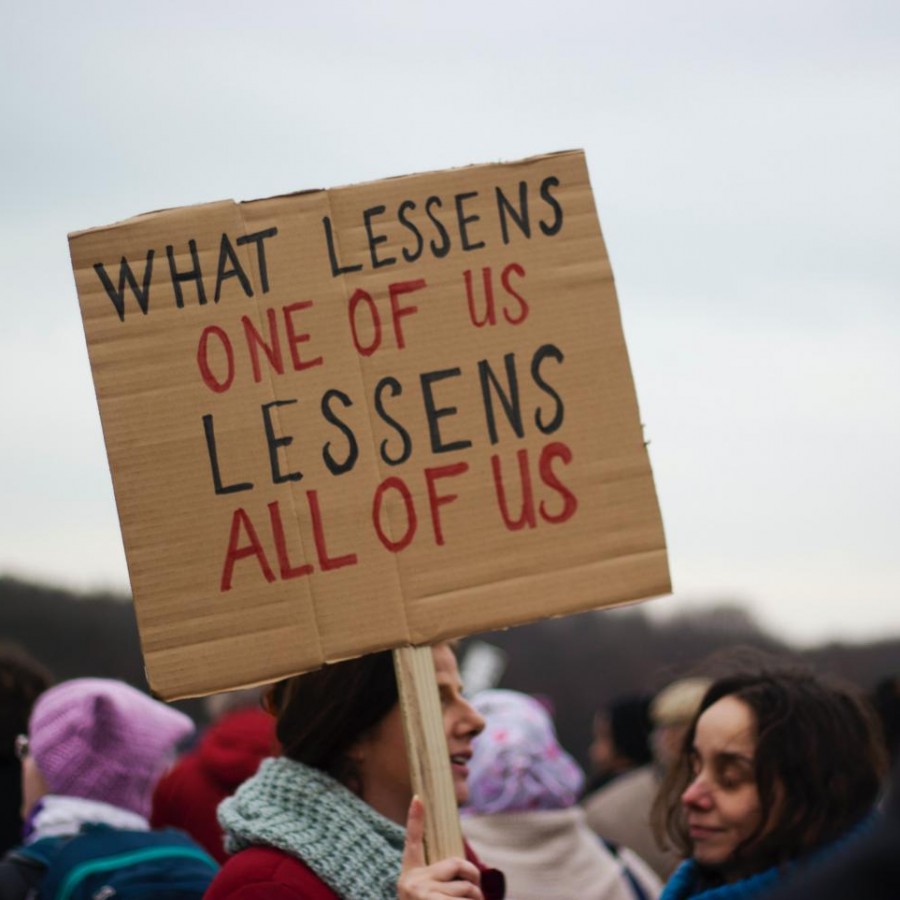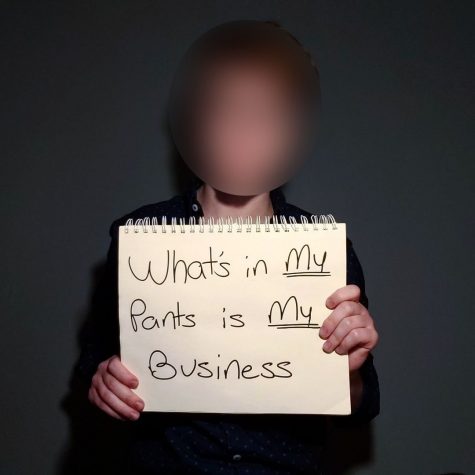
Unsplash
A picture taken at a rally signifies that bringing one person down, brings us all down. America is only as great as its most oppressed people. Something to keep in mind
“You are not allowed to touch my hair,” “that is not how you pronounce my name,” “I am a male despite what you may believe”.
When you feel that it is acceptable to touch a stranger’s hair because the texture is different from your own, when you are constantly pronouncing someone’s name wrong or when you are referring to someone by incorrect pronouns: these are microaggressions.
Microaggressions are the disregardment and/or discriminatory actions and phrases one may use intentionally or unintentionally towards oppressed groups of people.
Many might not understand or know the terms of microaggression or the aggressors, but it is crucial to know it comes in countless forms.
Racial Microaggressions
Racial microaggressions are actions which may seem harmless or intended as a joke, but are ultimately, distressing and vexatious to a group of people.
One offense would be phrases people may come up with to unintentionally make a person feel outcast–such as asking an Asian person to do their math homework. Many times it’s using someone’s culture to get what they want. It’s the same as asking the black kid to act as the slave in history class.
Another microaggression that many people ignore, are ethnic names. When someone corrects people on how to pronounce their name, those people should listen. Trevor Zahn, the American government and sociology teacher at PV conveys that pronouncing names is a crucial part of being a teacher,” When it comes down to the fundamentals, when someone doesn’t take the time to learn your name it can really be diminishing to that person, it’s one of the things I always try to get down first”.
The blatant disregard of someone’s culture is an offense used by individuals who are often uneducated and uncomfortable. Someone who is uneducated may call a light-skinned person, who is Mexican, white, or call someone who is Korean, chinese. Another might say that “you are different from the other black girls,” insinuating that there is something wrong with black women.
Someone who is uncomfortable could be irritated by a loud group of black kids who are minding their own business–something which occurs frequently at PV. With school being a place for learning, aspects of culture can be overshadowed. So when a black group of girls are doing nothing wrong but speaking louder than you would prefer, do you need to confront them? Oftentimes black students and adults are held to an expectation of conforming to “white culture” to not be identified as problematic. The black culture tends to be louder and sassier; it’s not that they are trying to be rude.
Identity Microaggressions

A prevalent phrase that people use is “that’s gay,” usually when someone thinks an action is dumb or their friends are doing something they feel is feminine. People who are not a part of the LGBTQ+ community may see this as derogatory.
Kade Green, a senior at PV has had identity issues at PV. “I would try my hardest to pass as a “normal” guy. I would wear baggy shirts and bind my chest so it looked flat. I would try to talk deeper so I sounded more like a boy. It didn’t really work.” Green expressed how conforming to the gender construct of being a man can be complicated whilst in high school. “I would do certain things to try and blend in with all the other guys. And I would still have people make fun of me and call me names whether they knew I was trans and gay or not.”
The LGBTQ+ community also deals with agressions such as contentious people demanding to prove a person’s sexuality and continuously calling someone by the wrong pronouns, despite the correct ones having already been established. Additional phrases the LGBTQ community frequently hears include: “it’s just a phase,” “you’ll get over it,” or “this is not who you are”. The remarks are often made by those close to the victim and are generally used to imply the victim is making “poor lifestyle choices.”
Deaf culture is another group who face everyday aggressions. Asking deaf people if they can drive or talk reinforces ableist behaviors, as the only thing deaf people cannot do is hear.
Aggressions against deaf individuals include yelling at or speaking to them when you know they are unable to hear you, as opposed to trying to translate into American Sign Language. Another microaggression would be turning off captions or not having an interpreter at large events–which is exclusionary and feeds inequality.
Educating America on the struggles of others is an effort the black, Asian, Latino, LGBTQ+, deaf and other marginalized communities have to partake in. The people who are constant perpetrators of microaggression show marginalized cultures that they do not care about their fight for equal rights or equal treatment.
Marginalized communities are not the only ones who can call out and educate others on microaggressions, but allies of these groups can too, as a way to show solidarity with and support for those who face these remarks on a daily basis.
